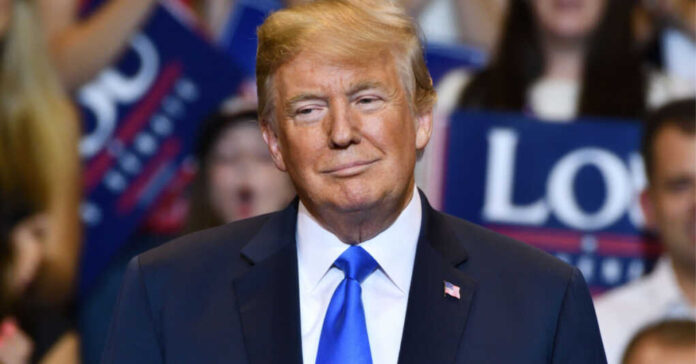
It’s no wonder former President Donald Trump is considered Teflon-coated. No matter what the left throws at him, nothing seems to stick. His court cases are beginning to unravel, and the latest, the implosion of his election interference court case, is a doozy.
The election interference case in Washington was initially slated to be the first of Trump’s four criminal proceedings to face a jury. Several months ago, Judge Tanya Chutkan set a trial date for March 4. It was imperative for Democrats that the case proceed on March 4, as it conflicted with Trump’s ability to campaign ahead of Super Tuesday.
However, Trump’s legal team threw a curveball by filing a motion to dismiss the case. Their argument? Trump enjoyed complete immunity from the charges because they stemmed from actions he took during his presidency.
Earlier this month, a federal appeals court unanimously tossed the immunity defense claim, ruling that Trump was to be held accountable for breaking federal criminal law just like any American citizen would be. Trump’s lawyers immediately filed the case with the Supreme Court.
Chutkan was then forced to suspend the underlying case, possibly for months, until SCOTUS decided if it would resolve the immunity question.
And the Supreme Court of the United States has decided it will hear the case. The justices have agreed to review the evidence presented by a lower court’s rejection of the immunity claim before ultimately hearing the case at the end of April.
Against all odds, Trump bought himself enough time to push the trial out dangerously close to the 2024 election, and the left is losing its mind.
And even more time than the media is admitting to. Chutkan decided that Donald Trump shouldn’t lose any preparation time during the case’s pause. In the interest of fairness, she proposed that the former president gain an extra day of preparation for each day lost due to the stay.
Chutkan halted the election case on December 13. Trump is now entitled to an additional 82 days of preparation time—equivalent to the period between December 13 and the originally scheduled trial date of March 4. However, if the Supreme Court delivers a ruling on the immunity issue in June, resuming trial preparations immediately afterward, these extra 82 days could potentially push the trial date into September.
Democrats, when they started the legal persecution of Trump, envisioned that he would be embroiled in court battles throughout 2024 and hoped his legal woes would either disqualify him from the race or keep him tied up in front of juries through the 2024 election.
But one by one, the cases are falling like dominos. Trump’s classified documents case in Florida was scheduled to begin in May, but a federal judge is expected to hold a hearing later this week to assign a new start date for the trial.
Meanwhile, Fulton County District Attorney Fani Willis is facing disqualification from Trump’s Georgia election interference case because of an inappropriate relationship with special prosecutor Nathan Wade.
Democrats thought they had won the game when Superior Court Judge Scott MacAfee was slated to hear Trump’s case. MacAfee was the state’s Inspector General during the tumultuous 2020 election and was directly affected by Trump’s claims of fraud in the state. Additionally, he was promoted into a prosecutorial position for Georgia’s complex trial division under Willis, and both he and his wife donated money to Willis’ campaign in 2020. He was eager to side with the prosecution and assign an exorbitant penalty against Trump in his New York fraud case.
While it’s unlikely Superior Court Judge Scott McAfee will uphold a conflict of interest claim for Willis and Wade, the complication derails the carefully considered timeline of Trump’s trial.
Despite all the Democrat planning, it seems that Trump just may skate any past his trials, excluding the Stormy Daniels, E. Jean Carroll, and New York real estate fraud cases, for quite some time. With no guarantees that the election interference trial will be wrapped up before the election, Trump will almost certainly face Biden in November.
If Trump delays the trial until after Election Day and wins, he could use his presidential powers to dismiss the election interference indictment altogether. Moreover, the Justice Department usually avoids prosecuting a sitting president. So, once he takes office, Trump might be able to postpone any federal trial he’s facing until after his term ends.
As Democrats watch their strategy fall apart, they realize they may see Trump challenge Biden in November despite their carefully laid plans. And darn it, cry Democrats, it’s just not fair.







